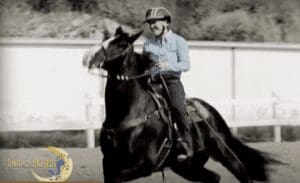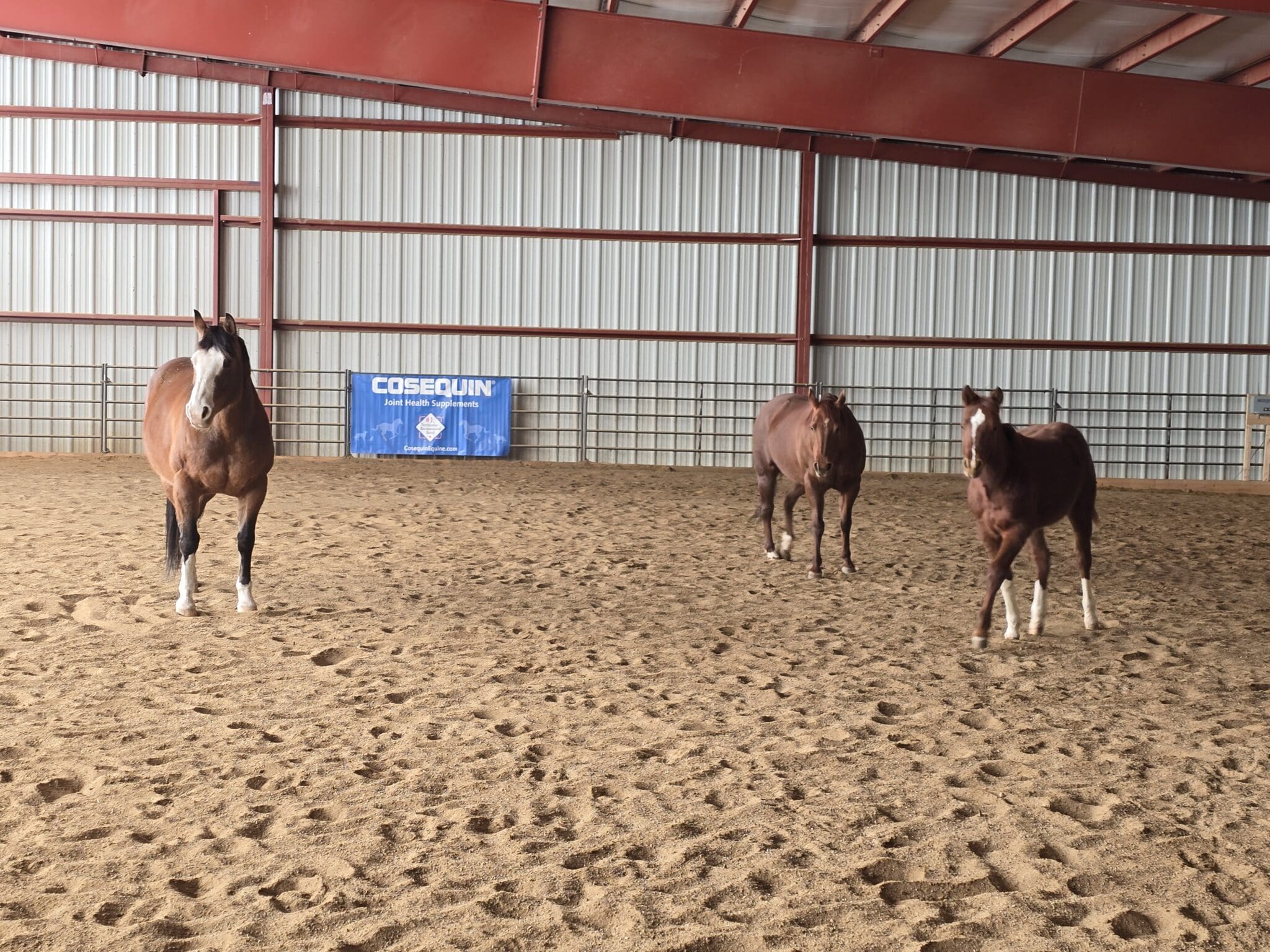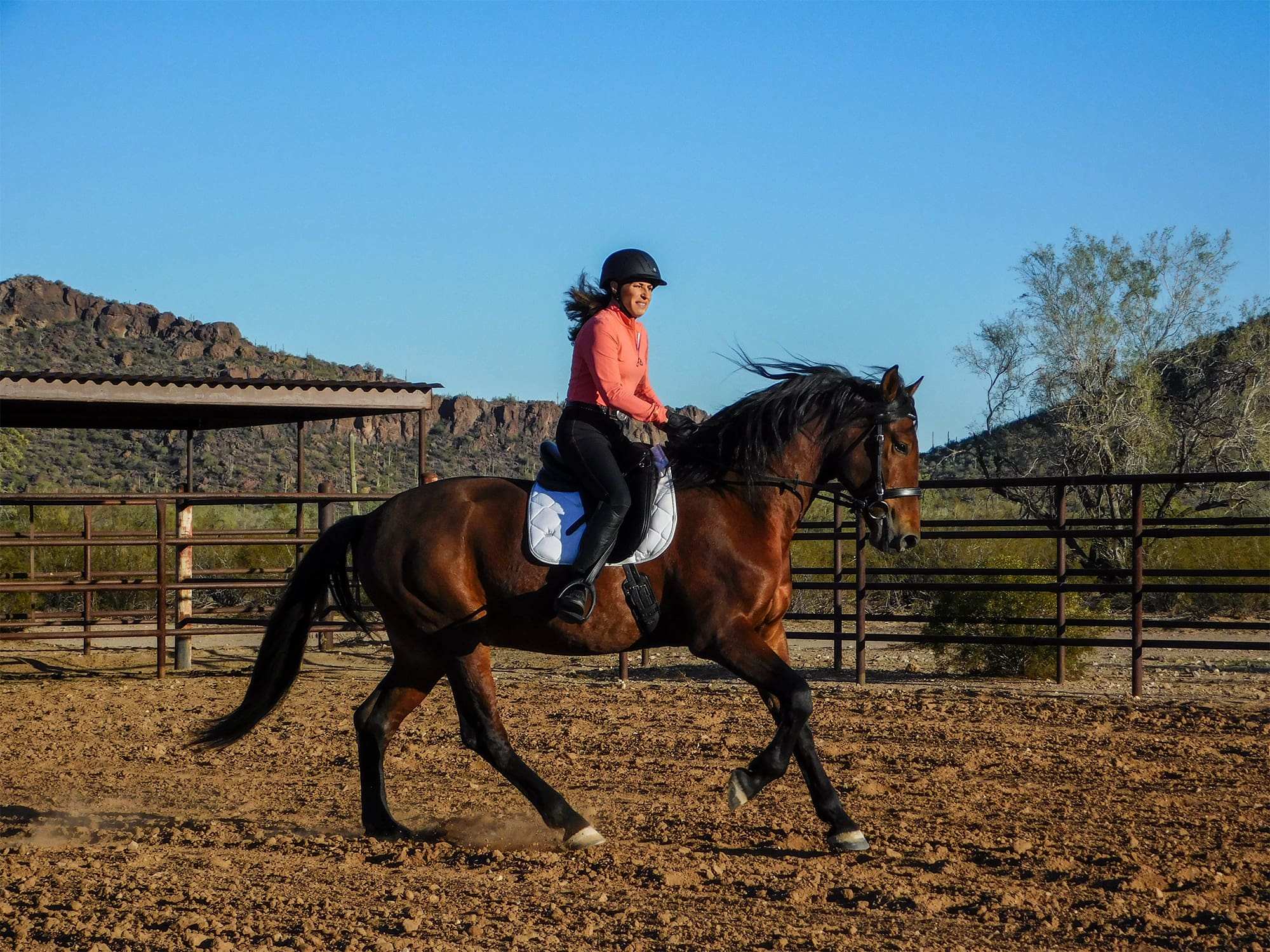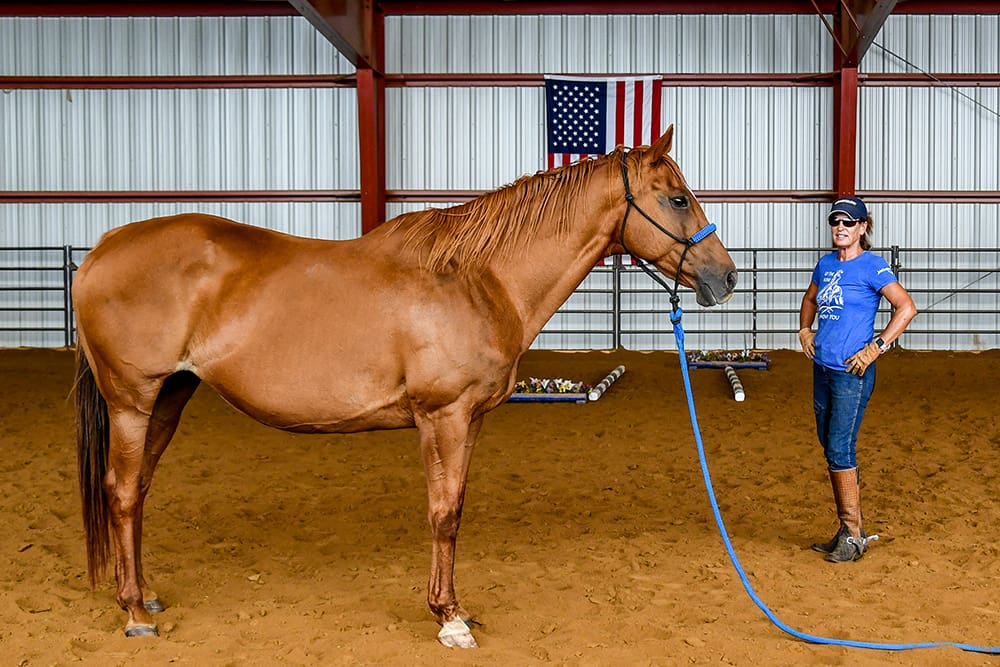Question: Dear Julie,
I have a bit of an issue with bucking (sometimes so unexpectedly…) when asking my mare to lope (slow canter). If I let her go off at her own pace (at a gallop) she is usually fine but if I ask her to go forward but at the same time hold her back she gets mad and starts a real rodeo type buck (back arched upward, front feet off the ground then back feet continually). The last time it happened I brought her into a tight circle and managed to stop her then trotted her very briskly in varying circles for about 15 minutes. I haven’t tried again since because we then got bad weather! Now the weather is better and I want to start again! I’d appreciate any advice you can offer.
All the best
Rosa
Answer: Rosa,
What you describe with your mare in the canter transition is a very common problem and I think once I explain it to you, you’ll understand why your horse is acting this way and therefore be able to fix it.
You are essentially giving your horse two conflicting cues at the same time: go and stop. Her bucking fit is a result of her frustration and fear. She is frustrated because it is not possible for her to comply (she cannot go and stop at the same time). Because no matter what she does it is wrong, she has learned to fear and resent the canter cue.
This is often inadvertently taught to horses when asked to canter by a rider that fears the canter. The horse gets the cue to canter and complies but then the rider, unconsciously pulls up on the reins (because she doesn’t really want to canter or is afraid of going too fast) and the horse is punished for doing what you asked. Some horses just learn not to canter at all when given conflicting signals, but others learn to fear the transition and will have some sort of emotional outburst in every transition.
When you ask the horse to canter, one of the first things that happens is that her head bobs down (as it does with each stride); if at that moment you are already checking up on the reins to slow her down, you have punished her by hitting her in the mouth for doing what you asked. The bucking is simply an emotional outburst on her part because of the anxiety this has caused her. You need to treat the canter departure and slowing down the canter as two separate training issues that you will work on at separate times. You’ll have to go back and do some remedial work with her on the canter cue/departure, giving her a HUGE release of rein when you ask her to canter. Don’t worry if she goes fast, just gently pull her onto the circle after a few strides and the turn will cause her to slow down and the bending of her neck will give you more control. Once she comes to trust your canter cue and is no longer having emotional outbursts, then you can start working on slowing her down.
The more miles you log at the canter, the slower she will get and there are some articles in the Training Library from my website that will give you different exercises for slowing down the canter. But work on that separately from the canter departure.
Horses generally have to be taught the slow canter—it is not really natural for the horse and the younger, greener, and less athletic they are, the more likely the canter is fast and disorganized. I never get in a hurry to ask the horse to slow-canter—it comes with balance, coordination and lots of cantering.
Volume 4 in my Principles of Riding Streaming series is called “Canter with Confidence” and it would be perfect for you. Not only does it discuss these issues, but it also gives detailed information on canter cues, canter departures, leads and problems at the canter. Maybe you should put the video on your Christmas wish list!
Good luck!
Julie
Copyright ©Julie Goodnight 2000. All Rights Reserved. No part of this website may be reproduced without owner’s express consent.



